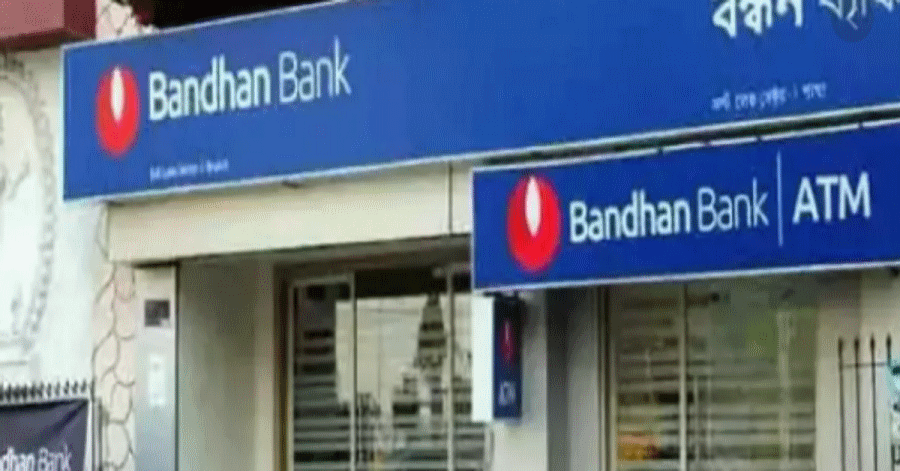Contrary to the analysts’ expectations, private sector lender Bandhan Bank on May 8 reported a steep 80.1 percent year-on-year decline in profit at Rs 103 crore in March 2021 quarter. This is because of the sharp spike in bad loan provisions but supported by other income and operating income.
Profit in the year-ago quarter was at Rs 517.3 crore.
Bandhan Bank’s profit in the financial year FY21 plunged 27.1 percent to Rs 2,205.5 crore as provisions spiked to 180.4 percent YoY; at the same time net interest income rose by 19.6 percent to Rs 7,563.4 crore as compared to the previous year.
Net interest income, the difference between interest earned and interest expended, grew by 4.6 percent year on year to Rs 1,757 crore, with loan portfolio (on book + off book+ TLTRO) growth at 21.2 percent and deposits growth at 36.6 percent YoY.
Numbers were below analysts’ estimates. Profit was estimated at Rs 441.5 crore and net interest income at Rs 2,012 crore for the quarter, according to the average of estimates of analysts polled by CNBC-TV18.
Bandhan Bank said it added 5 lakh customers during the quarter and 29 lakhs during the year with a total customer base at 2.30 crore as of March 2021.
Provisions and contingencies remained strongly elevated at Rs 1,594.3 crore for the quarter, an increase of 92.7 percent compared to the year-ago quarter and rose by 49.2 percent compared to the previous quarter.
The Kolkata bases lender said, “The bank is also carrying in micro banking portfolio additional provision of Rs 388 crore on standard advances and reported an interest reversal of Rs 525 crore on Q4 FY21 on account of NPA recognition.”
During the quarter, the bank said it has restructured accounts carrying a value of Rs 617 crore as on March 2021 of the housing finance vertical comprising 0.71 percent of the total portfolio. On the asset quality front, gross non-performing assets as a percentage of gross advances fell 31 bps sequentially to 6.81 percent, but net NPA increased 115 bps QoQ to 3.51 percent in Q4FY21.
Non-interest income (other income) jumped 57.4 percent year-on-year to Rs 787.25 crore and pre-provision operating profit at Rs 1,729.47 grew by 13.7 percent YoY in Q4FY21.
Profit in the financial year FY21 plunged 27.1 percent to Rs 2,205.5 crore as provision shot up 180.4 percent YoY, but net interest income rose by 19.6 percent to Rs 7,563.4 crore compared to previous year.
Managing Director and CEO, Chandra Shekar Ghosh said, “A very challenging year ended on a positive note with growth and collection coming back to normalcy. With accelerated provisioning and write-off, we are now well placed as we enter FY22. We remain cautious but confident as we deal with the COVID-19 second wave.”
At a conference call, the bank management said:
The bank saw a 3-5 percent collection efficiency impact due to the second COVID wave. If the second COVID wave settles in 2-3 months, then the impact on business will be insignificant as its growth comes in the second half.
The bank is confident of improvement in collection in the coming months. As many as 72 percent of NPA customers paid instalments in April, of which 7 percent have paid full instalment. Local lockdown in the second wave has not impacted the business of small enterprises.
In West Bengal, business activity continuity was seen, and it was much better than the first lockdown. The present quarter (Q1FY22) is expected to be much better in performance versus the same period last year. As many as 632 microcredit branches have been opened, most outside West Bengal and Assam. New customers have been added in the new branches. Fifty percent of borrowers in West Bengal and Assam are matured and have converted to individual loans.
Learnings from the last lockdown will reduce impact in the second wave due to past experience. There is no merit in restructuring loan for non-paying customers; a write-off is opted. Businesses like gym and beauty parlour have seen write-off due to the nature of business.
The Rs 538 crore NIM reversed because of lumpy NPA recognition in this quarter and Rs 13 crore hit was due to the Supreme Court’s order on interest on interest.
